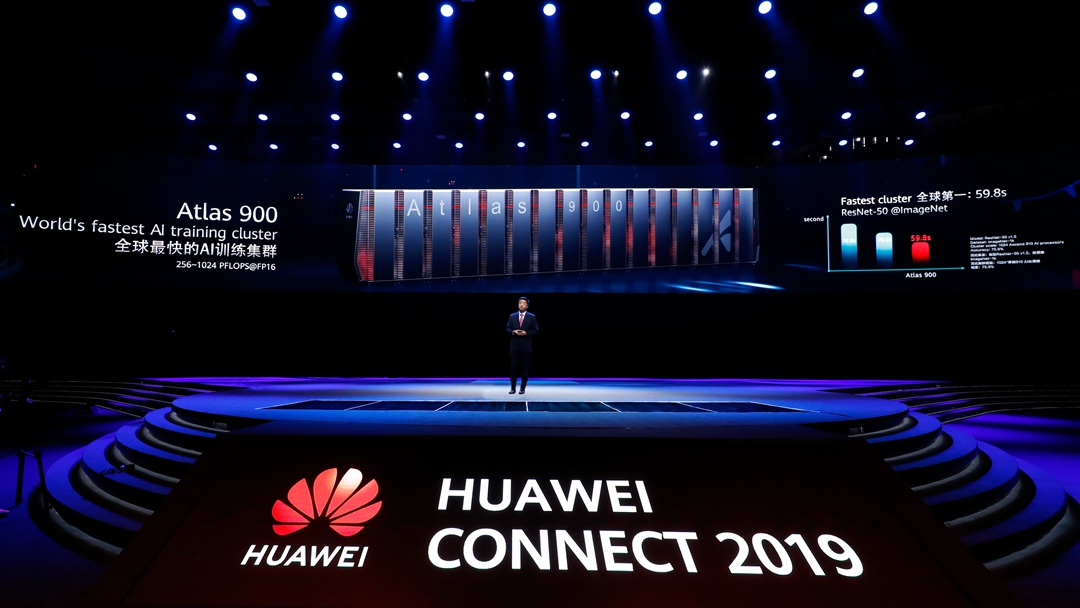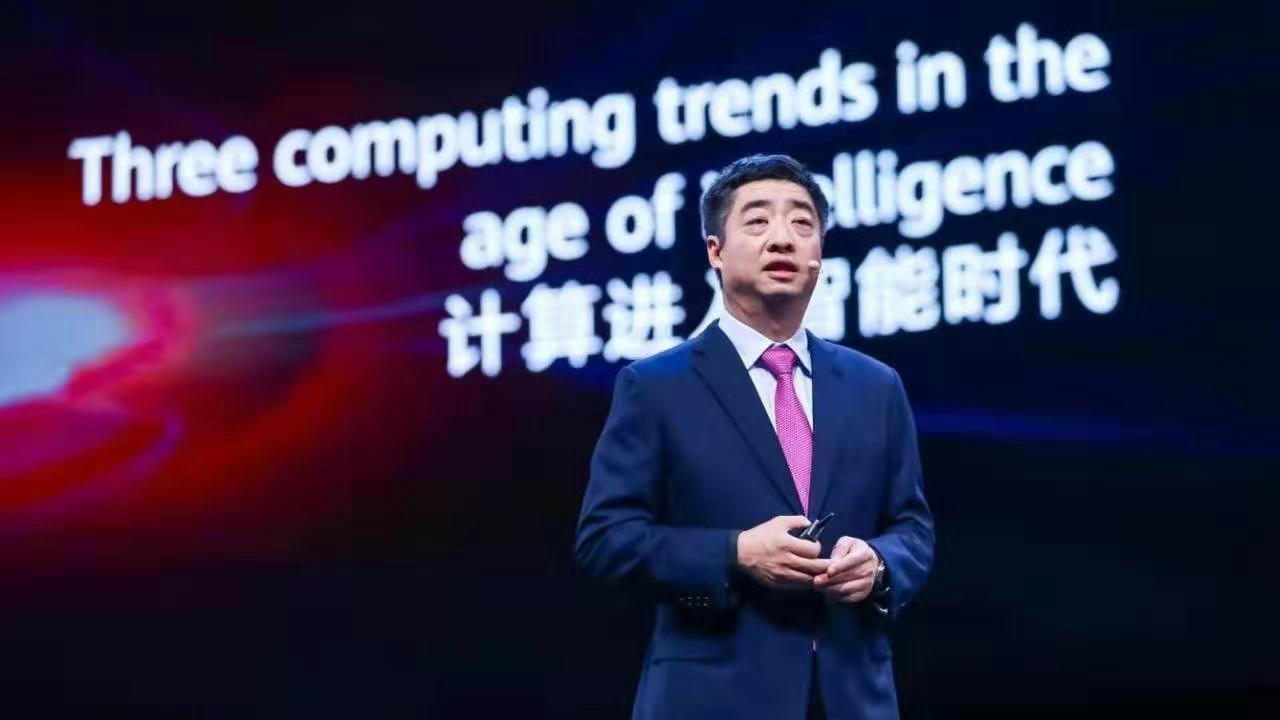
Huawei launches Atlas 900, the "world's fastest AI training cluster," at its annual Huawei Connect conference in Shanghai, China, September 18, 2019. /Photo from Huawei.
Huawei launches Atlas 900, the "world's fastest AI training cluster," at its annual Huawei Connect conference in Shanghai, China, September 18, 2019. /Photo from Huawei.
Chinese tech giant Huawei hit headlines again as the company launched what it called the "world's fastest" AI platform at its annual Huawei Connect conference in Shanghai on Wednesday.
The new product, named Atlas 900, is the "world's fastest AI training cluster," which combines the power of thousands of its Ascend chips, and can handle tasks in seconds that used to take several months, according to Hu Houkun, deputy chairman of Huawei.
Read more: Huawei launches 'world's most powerful' AI chip Ascend 910 and open-source AI framework MindSpore
The cluster finished the entire training of the ResNet-50 model, an industry standard for measuring AI training performance, in 59.8 seconds, about 10 seconds faster than the previous world record, Hu said.
The great computing power of Atlas 900 means it could be widely used in scientific research and business innovation, such as astronomical exploration, oil exploration and other fields that require huge data calculation and processing, Hu said.
The company has deployed Atlas 900 on Huawei Cloud as a cloud service to let its global clients, mainly scientific institutions and universities, have a quick taste of the AI training product, according to Hu.

Hu Houkun, deputy chairman of Huawei, speaks at the annual Huawei Connect conference in Shanghai, China, September 18, 2019. /Photo from Huawei.
Hu Houkun, deputy chairman of Huawei, speaks at the annual Huawei Connect conference in Shanghai, China, September 18, 2019. /Photo from Huawei.
Huawei's computing strategy
Huawei has invested in the computing sector for more than 10 years, Hu said.
People may think that Huawei has mainly focused on the connectivity technology, but that is not the only thing Huawei is working on, Hu said.
"In our view, both connectivity and computing power are indispensable to support an intelligent world in the future," he noted, adding that Huawei will invest more in AI computing area, explore new architecture and develop processors that meet people's needs across all scenarios.
Huawei also seeks to build an open ecosystem for its computing strategy both in terms of hardware and software.
The company will further invest 1.5 billion U.S. dollars in its developer program in the next five years, expanding the program to 5 million developers and better enable its partners around the world to develop the next generation of intelligent applications and solutions.
The Huawei Developer Program, announced in 2015, has empowered more than 1.3 million developers and 14,000 independent software vendors around the world.
In the AI era, there is a huge demand for computing power, and statistical computing will soon become the mainstream, Hu said. "We estimate that five years from now, AI computing will account for more than 80 percent of all the computing power we use around the world."
In embracing the AI era, scientists have developed statistical computing models for big data including voice recognition, image recognition and real-time translation the traditional rule-based computing could not deal with.
(With input from Xinhua)